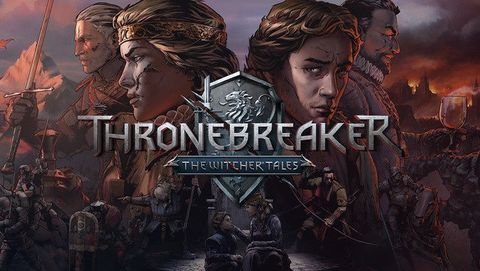
Thronebreaker: The Witcher Tales, a new singleplayer role-playing game (RPG) adaptation of the critically acclaimed Gwent multiplayer card title, features a thrilling new narrative set directly before The Witcher trilogy of games in which you play as Queen Meve of Lyria and Rivia.
Between the incredibly well-written story, the memorable characters, and the excellent and fresh interpretation of Gwent's gameplay, Thronebreaker: The Witcher Tales is a game foolish to miss.
Read on for further details on what makes the game such a treat.
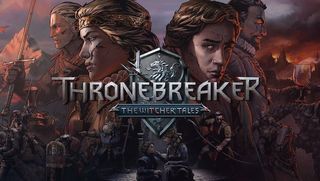
Taking card games to new heights
Thronebreaker: The Witcher Tales is an incredible singleplayer version of Gwent that can't be passed up if you love RPGs.
About this review
This review was conducted on a Windows 10 PC equipped with an Intel i7-8700K processor, an NVIDIA GeForce 1050Ti graphics card, and 16GB of RAM, using a review copy of the game provided to Windows Central.
Story: Defend the kingdom from threats and foes
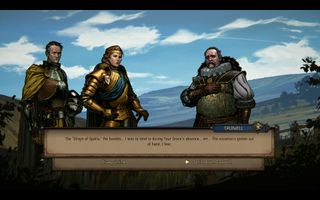
As Queen Meve, it's your job to protect the subjects of Lyria and Rivia and defend the lands from any and all potential threats. This, ultimately, is what Thronebreaker: The Witcher Tales is about; you choose how you rule, and the way you exercise your royal authority will have a direct impact on the way the game's story progresses. Depending on how you treat the people under your command and within your borders, you can build yourself a reputation as ruthless, kind, cunning, strategic, and more. None of these play styles is "right", and each of the possible directions to choose from will have their own positives and negatives.
Certain companions will also grow to appreciate your leadership approach or loathe it — even to the point where they'll leave your service completely. Each companion has their own personal beliefs and views, and if you do something they do (or don't) like, they will almost always speak their mind on the matter.
Each companion has their own special traits that give you special options to use during battle, so this is something that should be considered when choosing your words and deciding whether or not you want to anger or please someone. This is a level of character agency that many RPGs fail to achieve well, so for CD Projekt Red to do it in their Gwent singleplayer spin-off is to be commended.
Gameplay: Gwent, reimagined
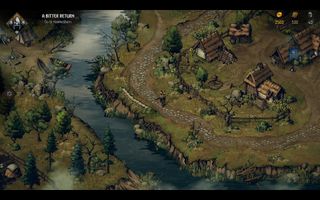
When it comes to gameplay, Thronebreaker is primarily split into two different types of mechanics: open world exploration, and card game combat battles. The former is where you progress the plot, collect resources, gather new units and boost your army's morale, while the latter is a tactical, strategic experience where you overcome fearsome foes.
The overworld is a well designed setting in which plenty of interesting lore references and story situations can be discovered. As you freely move throughout the land, you'll find wood stockpiles, recruiting stations and more that are all converted into resources, money, and soldiers. Collecting as many of these as possible is important in order to fight effectively in battle and upgrade unit cards, as well as unlock new ones.
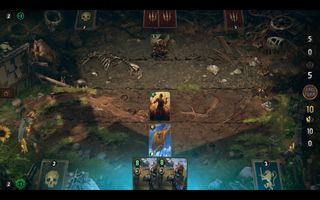
The card battles themselves, though, are where things get fun and downright addicting. Thronebreaker's combat system works exactly like Gwent: two opponents compete with one another to have as many powerful soldiers on their side of the battlefield before a round is over, and you have to win two rounds to win a match. However, Thronebreaker spices things up by adding in story-exclusive modifiers such as walls of fire or large iron gates that block movement and attack, as well as a troop morale mechanic that impacts your army a different way depending on your choices.
For example, if you make your troops move an obstacle in your path instead of pay someone to do it while in the overworld, they'll be tired and less motivated to fight when the time for battle comes. Managing your troop morale adds a breath of life into the borrowed Gwent mechanics, and also adds a fair amount of impact to your choices made in the story and while exploring.
Enemy artificial intelligence is competent for the most part, though things can occasionally feel a bit easy, especially if you're a seasoned Gwent master. However, that isn't always the case, and there's still plenty of ways that the enemy can achieve victory over you if you aren't careful.
Presentation: Above and beyond expectations

The thing that surprised me the most about Thronebreaker are the graphics and the attention to visual detail in general. Both the pre-rendered cutscenes and in-engine dialogue scenes look absolutely gorgeous, and are filled with rich color and vibrancy. Thronebreaker uses a visual novel-inspired, stylized art style that looks great, and CD Projekt Red even took the time to animate the characters' sprites and give them lip syncing to match the dialogue. Something I did notice, however, was the fact that the game tended to drop frames at seemingly random moments, including times where there was particularly nothing taxing for my system on-screen.
In terms of audio, the game's voice acting is stellar, and each and every person cast for the task clearly gave it their all in the recording studio. The music, while not mind blowing, was still good, and the sound effects present during overworld exploration and combat sequences added plenty to the immersion.
Final thoughts on Thronebreaker: The Witcher Tales
Between its incredible story, excellent gameplay, and surprisingly fantastic presentation factor, Thronebreaker: The Witcher Tales is yet another masterpiece from CD Projekt Red that pushes the boundaries of game design and proves that anything, even a card game, can be groundbreaking if done well.

Taking card games to new heights
Thronebreaker: The Witcher Tales is an incredible singleplayer version of Gwent that can't be passed up if you love RPGs.
Pros:
- Superb story.
- Excellent gameplay.
- Surprisingly impressive graphics.
Cons:
- Can be too easy at times.
- Odd framerate drops.
Thronebreaker: The Witcher Tales is currently only available on GOG.com, although you can preorder it now for Xbox One on the Microsoft Store and have it ready when it launches on December 3.
Brendan Lowry is a Windows Central writer and Oakland University graduate with a burning passion for video games, of which he's been an avid fan since childhood. You'll find him doing reviews, editorials, and general coverage on everything Xbox and PC. Follow him on Twitter.
